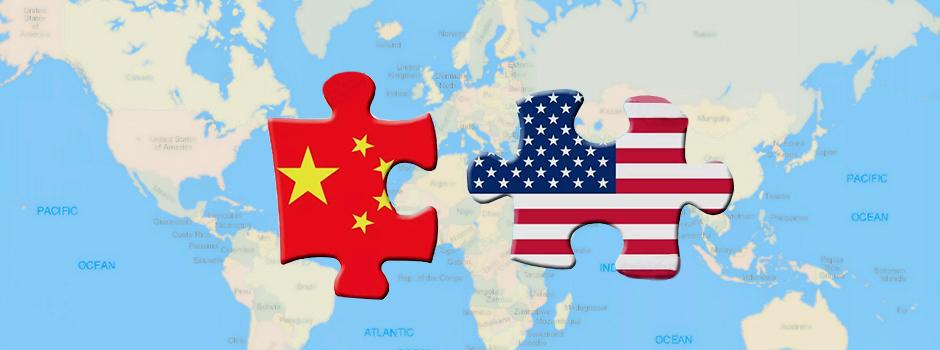In anticipation of the first summit between President Xi Jinping and President Donald Trump in early April, NYU Shanghai hosted two leading political scientists Sun Zhe and Ni Shixiong this week, who shared unique insights into China’s foreign policy trajectory.
On March 27, Professor Sun, founding director of the Center for US-China Relations at Tsinghua University, analyzed the past and present transformation of Sino-US relations in a public talk, moderated by Professor Dan Guttman. An author of more than twenty books on comparative politics and US-China relations, Sun also co-directs the China Initiative at Columbia University’s School of International and Public Affairs.
Beginning with a summary of China’s foreign policy under President Xi Jinping’s administration, Sun said that over the years, China is seeking to assume a more active role in international affairs -- especially in global development -- evidenced by the launch of the “Belt & Road Initiative” and the founding of The Asian Infrastructure Investment Bank (AIIB).
According to Sun, Beijing’s attitude towards Washington is still “strategically suspicious, economically hopeful and practically uncertain,” but it is also exploring a productive working relationship with the US.
Echoing Sun, Professor Ni Shixiong, an expert on American politics from Fudan University, further explained the impact of the 2016 US general election on Sino-US relations along with shifts in the American political scene, in his talk on March 29, moderated by Ivan Rasmussen, visiting assistant professor of political science.
Ni, vice president of Shanghai Association of International Relations, and vice president of Shanghai Association of American Studies, indicated that prospects of bilateral relations remain uncertain as President Trump has not yet formed a team on China-related affairs, but issues such as the Korean Peninsula have already challenged fundamental interests of both countries.
According to Ni, as the “US pivot to Asia” ebbs and the “America First” demand rises, the new US government will seek to build a more “constructive and results-oriented” relationship with countries in the Asia-Pacific region.
“It is possible the Trump administration will embrace China’s proposal of establishing a ‘new type of major power relationship’,” he said. The policy, raised by President Xi during his visit to the US in 2012, is characterized by three principles of non-confrontation, mutual respect and win-win cooperation, and has been reaffirmed by US Secretary of State Rex Tillerson on his recent visit to Beijing.
“It is a good sign,” Ni said. “China and the US should accumulate consensus in order not to fall into ‘the Thucydides trap,’ in which a rising power clashes with a hegemonic power.”



